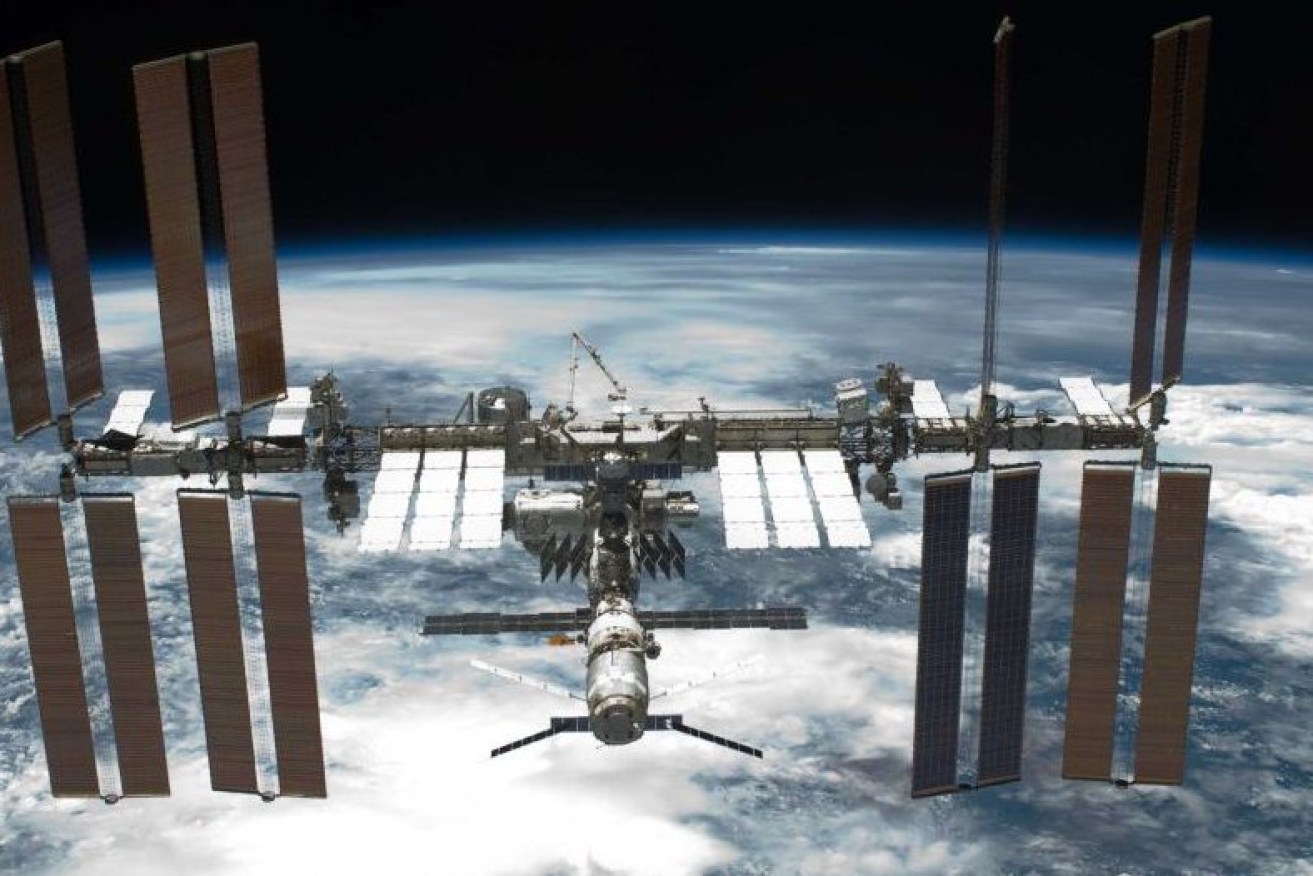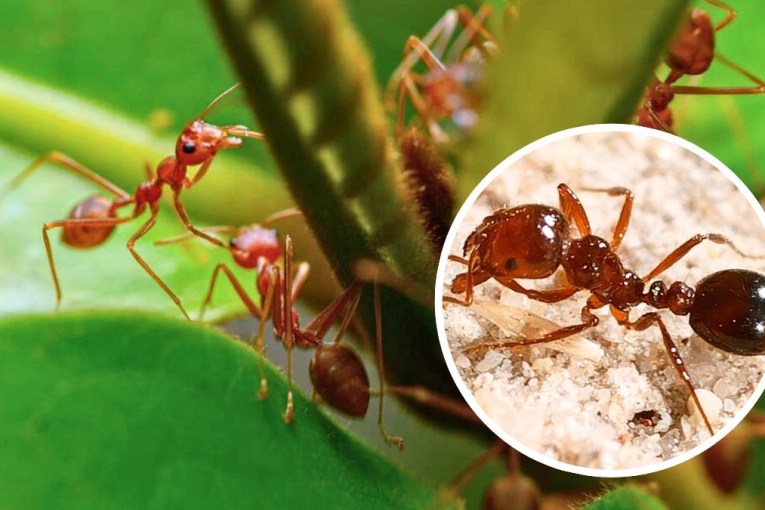Space is the new frontier in the battle against cancer

The International Space Station had a small air leak - but it was found and fixed. Photo: NASA
An Australian space medicine researcher is preparing to launch cancer cells into space, after trials on Earth show that they can be radically affected in near-zero gravity conditions.
“We’re all very excited about where this research is heading and more importantly, the implications and impacts to potentially provide the community,” Dr Joshua Chou told 7.30.
The cell will be placed into a device smaller than the size of a tissue box and sent into orbit on the International Space Station.
It’s not known why cancer cells behave differently when they’re in space, but it’s hoped that the experiment will lead to a better understanding of the disease and how it could be treated.
80-90 per cent of cancer cells die without drug treatment

Dr Joshua Chou with the prototype of the device that will take the cancer cells into space. Photo: ABC News
The idea was sparked when Dr Chou and one of his students, Anthony Kirollos, found that a micro-gravity simulator in their lab at the University of Technology Sydney (UTS) had a remarkable effect on cancer cells.
“We put in four different types of cancer – ovarian, breast, nose and lung cancer,” Dr Chou explained.
“And what we found was that in 24 hours in this micro-gravity condition, 80 to 90 per cent of the cancer cells actually die without drug treatment.
“This is simply in a micro-gravity environment.”
The simulator mimics the space environment by reducing gravity.
Dr Chou and Mr Kirollos think the reduced gravity kills the cancer cells because it stops them communicating with each other.
“When we’re in space, what happens to the body is that your cells start to feel this condition which we call mechanical unloading,” Dr Chou said.
“It means that there’s a lack of force because there’s no gravity.
“This actually affects how the cells move, how they function and also dictate their survivability.
“Our hypothesis is that they can no longer sense their surrounding and, therefore, the cells go into the state of apoptosis, or cell death.”

Anthony Kirollos said sending the cells into space was just another of Dr Chou’s wacky ideas. Photo: ABC News
“If you’ve ever been on a rollercoaster, you have that gut feeling of dropping, so that’s dropping towards the centre of the earth, essentially, we constantly want the cells to experience that,” Mr Kirollos told 7.30.
“[The cancer’s we’re sending] are a few of the hardest cancers to kill.
“We’ve had some really interesting results with those.”
So interesting, in fact, that it planted the seed of an idea in Dr Chou’s mind.
“He initially said, ‘Look, I’ve got this idea that I want to study cells in space’,” Mr Kirollos told 7.30.
“I thought it was a far-out movie idea that he kind of had. So when he said it to me, I was taken aback.
“Josh is always coming up with kind of wacky ideas like that. So, it wasn’t completely out of the scope of him, but still [it] was one that was outside of what he usually says.”
‘A lot of people called me crazy’

Dr Chou working in his lab at the University of Technology Sydney. Photo: ABC News
There is a lot of work to be done before next year’s rocket launch.
“The idea of sending live cells into space is actually not trivial. It’s actually very challenging,” Dr Chou said.
“We’re limited to the dimensions and the weight of what we can send up there.
“So a lot of the technology actually has to be miniaturised.”
All of this will cost about $200,000.
Dr Chou hopes to replicate his promising lab results in space and forge a new path for cancer treatment.
“In my head, this is not supposed to be a cure, a golden bullet to cure cancer, but it can work in parallel to existing therapies, drug treatments, and so forth, to help increase the efficiency of the current treatment,” he said.
When the rocket carrying the cancer cells launches, it will be the first Australian research mission to the International Space Station.
“When I started this project, a lot of people called me crazy,” Dr Chou admitted.
“And, you know, to be able to see it to come to fruition and have that launch will really be a milestone in my life.
“I think I’m going to cry for a bit, but I’ll be very happy about it.”
–ABC








